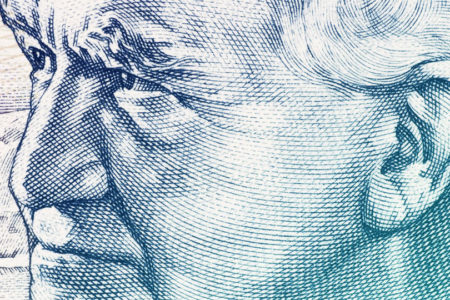U.S. Quits UNHRC ‘Cesspool’
After more than a year of warnings, the Trump administration has followed through on a pledge to withdraw the United States from the United Nations Human Rights Council (UNHRC), calling it a “cesspool of political bias” that singles out Israel for condemnation while ignoring atrocities in other countries.
U.S. Ambassador to the UN Nikki Haley, who visited the 47-member UNHRC’s headquarters in Geneva in June 2017, had insisted on two specific reforms: keep the worst human rights abusers from obtaining seats on the Council and remove Agenda Item Seven, which deals with the so-called human rights situation in “Palestine” and other “occupied Arab territories.” Both of her demands were ignored.
Agenda Item Seven, adopted in June 2007, singles out Israel for perpetual censure. Israel is the only country that has a dedicated agenda item at Council meetings, and Haley has repeatedly called out the UNHRC’s “chronic bias against Israel.”
In announcing the U.S. decision to leave, Haley called the UNHRC a “hypocritical and self-serving organization” that displays “unending hostility” toward Israel. “Earlier this year, . . . the Human Rights Council passed five resolutions against Israel—more than the number passed against North Korea, Iran, and Syria combined. This disproportionate focus . . . is clear proof that the council is motivated by political bias, not by human rights,” Haley said.
The UNHRC was established in 2006 to replace the UN Commission on Human Rights, which faced widespread criticism for allowing countries with poor human rights records to become members—and for its relentless bias against Israel. At the time, the Bush administration boycotted the UNHRC, arguing that, like the old commission, the new council had admitted nations with questionable human rights records. In 2009, the Obama administration reversed course and sought membership out of a belief “that working from within, we can make the council a more effective forum to promote and protect human rights.”
Yet the United States was unable to halt the barrage of anti-Israel resolutions. Of the 311 country-specific resolutions passed in the last 12 years, 76 deal with Israel, 27 with Syria, 20 with Myanmar, 18 with Sudan, and only eight with Iran.
Prime Minister Benjamin Netanyahu hailed the U.S. move: “For years, the UNHRC has proven to be a biased, hostile, anti-Israel organization that has betrayed its mission of protecting human rights. . . .[It] obsessively focuses on Israel, the one genuine democracy in the Middle East.”
The UN has remained defiant. The day before Haley announced the withdrawal, UN High Commissioner for Human Rights Zeid Ra’ad Al Hussein said his office would publish a “blacklist” of companies doing business in the West Bank, East Jerusalem, and the Golan Heights. The UNHRC, which mandated the creation of such a list in March 2016, said business activity with Israeli entities in the so-called occupied territories could be considered a crime under international law.
“It is outside the competence and the authority of the Human Rights Council to deal with blacklisting,” said Israel’s Permanent Representative to the UN in Geneva, Ambassador Aviva Raz Shechter. “This is part of the bias to try to delegitimize Israel.”
The UNHRC has also vowed to step up its “war crimes” probe into Israeli actions on the Gaza border. It approved the probe on May 18, two days after a Hamas official admitted that 50 of the 62 Palestinians killed during Gaza protests on May 14th and 15th were members of the Islamist terrorist group.









A totally useless organization